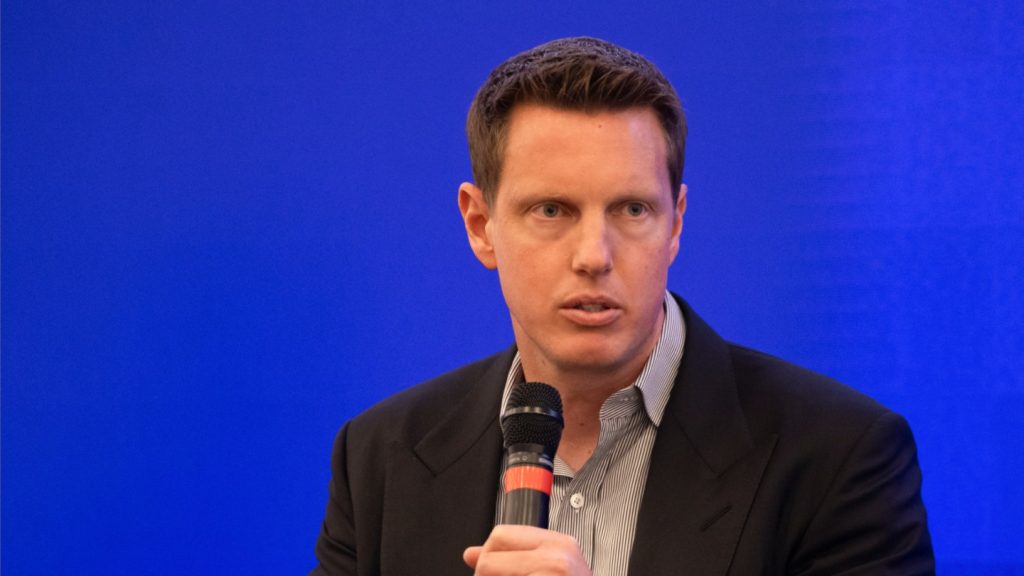In a near-midnight announcement on July 1, Paramount Global said it would pay $16 million “in total” to settle a lawsuit from President Trump, who sued over an interview that 60 Minutes conducted with Kamala Harris. Then, 16 hours later, the story took another turn when the New York Post‘s Charles Gasparino reported that there was also a “side deal” that helped seal the pact worth up to $20 million of programming in support of conservative causes, which was immediately followed by Paramount clarifying that it wasn’t aware of such terms. And if it couldn’t get any more opaque, Trump later confirmed murmurs of the seemingly backroom settlement by saying he’d receive millions in advertising from the “new owners” of Paramount.
So what exactly does the deal entail? It’s a question two top House Democrats have launched an investigation into, specifically whether Skydance offered a side deal in exchange for the FCC’s blessing of the merger.
“This appears to be an offer of payment and benefits to a government official designed to achieve a specific outcome from the government — in other words, a bribe,” wrote Reps. Jamie Raskin of Maryland and Frank Pallone of New Jersey in a letter to David Ellison, CEO of Paramount Skydance.
Thus far, Paramount has denied claims that the settlement includes public service announcements and said it “has no knowledge of any promises or commitments made to President Trump.” It’s maintained that the terms of the deal “are those disclosed by us” in the July 1 announcement.
The same goes for Shari Redstone and Skydance, whose lawyer at the law firm Latham & Watkins reached out to the ex-studio mogul to say that chatter of a side deal were “unmitigated false bullshit,” reported James Stewart in The New York Times.
At the same time, Ellison is playing coy. Gasparino got the first question at the Aug. 7 Manhattan press conference with Ellison, asking about the alleged side deal. The incoming C-suite responded that him and his team weren’t involved with the settlement in any way. His execs also declined to answer whether or not there’s another agreement with Trump.
“We’re ready to move past the noise,” Ellison added. “I’m excited to put my head down and do the work and build this business with this remarkable team up here, not sit up there and talk about, basically, how certain things are politicized.”
The politicization Ellison points to involves multiple conversations he had with Trump leading up to the FCC’s approval of the merger, not to mention the private meetings his father had with the president as Oracle emerged as a possible bidder for TikTok. In June, Ellison and Trump were seen chatting ringside at an UFC event in Newark, New Jersey. Within days of that discussion, Trump had endorsed Ellison’s bid to acquire Paramount — a point the lawmakers raise in their letter, which cites agreements between Paramount and Skydance filed with the FCC containing declarations that they haven’t engaged in bribery.
“Given your actions, it is difficult to see how those agreements have not already been breached,” Reps. Raskin and Pallone wrote. They’re asking for a copy of the settlement, as well as communications between Skydance and Trump’s team related to the merger.
In the wake of reports earlier this summer that Paramount would settle what was widely believed to be a frivolous lawsuit, there was chatter of shareholder lawsuits alleging a breach of fiduciary duty. The other side was much less discussed: there’s a good case to be made that Paramount’s board of directors owed it to investors to do whatever it took to push the deal through.
“I believed it was always in Paramount’s best interest to settle,” Redstone said in an interview with the Times. “We may not like the world we live in, but a board has to do what’s in the best interest of shareholders.”
Does that duty to shareholders extend to potentially extrajudicial efforts to lay a pathway to regulatory approval of the merger in the form of a side deal between Skydance and Trump? It depends on how the question is framed and who’s asked. If there is an agreement for free advertising, Ellison would likely answer that it’s separate and apart from the 60 Minutes settlement. And since Paramount wasn’t involved in those discussions, it can claim ignorance, as can Skydance, which has yet to directly contradict Trump on the terms of the agreement.
In response to a letter for Sens. Elizabeth Warren of Massachusetts and Bernie Sanders of Vermont suggesting any additional compensation in the form of advertising from Skydance could amount to a bribe, Skydance general counsel Stephanie Kyoko McKinnon didn’t deny there’s a side deal, only that the company “was neither a party to the lawsuit nor to Paramount’s settlement of its litigation with the President.”
Reading in between the lines: a side deal, if it exists, may only be solely between Ellison and Trump. Indeed, Trump’s legal team insisted to the Times that there was an unwritten understanding between the pair.
“I hope it isn’t true,” Redstone said in an interview for the story.
And if it turns out to be true that Paramount Skydance will run programming in support of conservative causes backed by Trump, that doesn’t necessarily mean they’d take the form of overtly partisan talking points on immigration or diversity. Hypothetically, they could already be running, hiding in plain sight.

